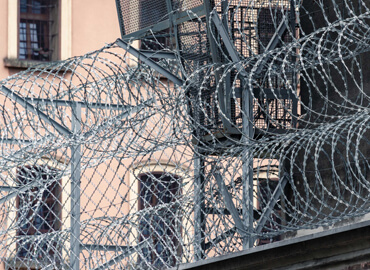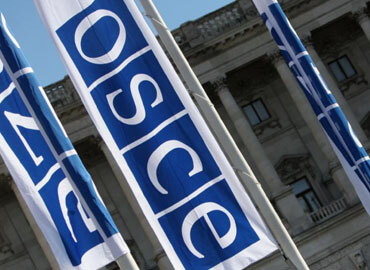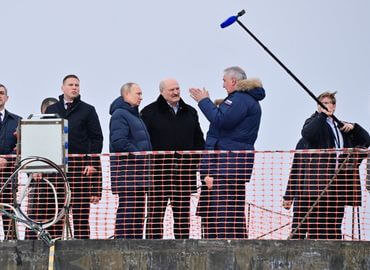Lukashenko’s apparatus is preparing to hold a referendum on the Constitution, scheduled for February 27. Lukashenko approved the publication of a poll by the Institute of Sociology, from which it follows that Lukashenko enjoys the support of 76% of those polled. This data is irrelevant. But they are now fixed data. The apparatus needs to be guided by this kind of figure when voting in a referendum. Obviously, the results of the referendum, from Lukashenko’s point of view, should end the still ongoing political crisis in Belarus. And if Lukashenko’s failure in the August 2020 elections is one end point on the continuum of events, then February 27, 2022, is at the opposite end. And at this point, according to Lukashenko’s plan, all the fallout from previous failures is «nullified». After the referendum, he will believe that he has fully restored his damaged legitimacy.
However, Lukashenko has already paid too high a price to the Kremlin to retain power. His status has been radically undermined and cannot be restored by any electoral or other procedures in the country.
1.
There are three important factors. The first is that Lukashenko has entered so far into an alliance with the Kremlin that he has lost the opportunity to use his «political legacy» as a basis for a sovereign «transition of power.» That is, he has lost the opportunity to maintain his political system according to a Nazarbayev model. Of course, Moscow in any case would have some influence on the choice of a successor or the outcome of elections in the event of Lukashenko’s sudden death. However, the political elites of Belarus would retain the option of maintaining distance from Moscow and sovereignty. Moscow would have accepted any choice, including Nikolai Lukashenko. But now the situation has changed radically. In Putin’s eyes, Lukashenko has lost his standing. He has ultimately, in Moscow’s eyes, become one of the post-Soviet veterans of the political scene, such as Yuri Luzhkov or Aman Tuleev, whose departure would completely put [Belarusian] territory at the disposal of the Kremlin and its new appointee. Even though Lukashenko successfully maneuvered for a long time, forcing the Kremlin to reckon with his «multi-vector policy», with severe actions against Moscow and at times with offensive rhetoric, this is now finished. The Kremlin has not demanded any specific favors from Lukashenko in exchange for political support, proceeding from the long-term strategic goal of gaining full control over the situation when Lukashenko departs.
Lukashenko has now been bitten by the Kremlin iguana, and the iguana is just sitting benevolently at his bedside.
The second fundamental point is that Lukashenko has no options for returning to a multi-vector policy. Everyone understands the difference in the aftermath of the 2010 protests. There are no strategies that would suggest that Lukashenko release political prisoners in the hope of restoring political relations with neighboring European countries and with the West in general.
The third fundamental factor is that Lukashenko, for the sake of maintaining power, crushed the colossal modernization infrastructure that arose in Belarus through his own efforts at creating multi-vector policy in 2015-2020. It will be restored only after his departure. Sanctions leave him only a gateway to the East while immersing him, together with the Kremlin, in militarization instead of civic modernization.
Lukashenko has only one strategy for extricating himself these dependencies: early presidential elections with the participation of real alternative candidates after the release of political prisoners. Lukashenko still could still prevent defeat in the first round and fight in the second. A defeat in the second round, if he decided on open elections with the participation of international observers, would uphold a sovereign «transition of power» for Belarus. However, he would not dare do so, which means that he has no other route than a permanent inertial drift towards the Kremlin. And if in other years it was possible to talk about the “Finlandization” of Belarus (neutrality and cooperation) or «Armenization» (military base plus deep economic integration), now we can speak about the political «Chechenization» of Belarus. Lukashenko is turning into a second Kadyrov. This is not about creating a «union state» as a framework that would keep Belarus as part of an imaginary «confederation,» but simply about moving Lukashenko together with Belarus, as it were, inside Russian territory on the terms of Kadyrov’s non-institutionalized «autonomy».
Lukashenko cannot save himself from this with the help of a referendum, however this may be possible with early elections, essentially returning things to where they were in June 2020.
2.
The situation in Eastern Europe is developing very quickly. Four months ago, Lukashenko attacked the European Union with a migration crisis. He created extremely eccentric threats, including the seizure of the airplane and the aggravating of Lithuanian and Polish border guards. He developed the rhetoric for conflict with Poland, the Baltic countries, and with the European Union as a whole. In the summer and autumn of 2021, Lukashenko looked like the poster boy of extremely harsh anti-Western rhetoric, which he presented primarily to the Kremlin while «selling» to the Russian government the important concept of taking on the conflict with the West, «covering» Putin, serving as a buffer in this conflict, and accepting any blows. However, in December, the game board was upturned: the Kremlin began its own large-scale conflict with the West and the threat of an invasion of Ukraine became the focus of attention. Against the backdrop of such a large-scale conflict, Lukashenko is losing his advantage. He can no longer be «more radical than Putin.»
He is left with one political option – to serve as a dangerous balcony hanging over Ukraine.
This is the worst thing that could happen to Belarus. Many in Kyiv fear that the next stage of the Kremlin’s escalation towards Ukraine will not be through the Donbass or the Sea of Azov, but through Belarus, creating a «proxy» situation. Lukashenko’s further inertial drift towards the Kremlin creates opportunities for Putin. If the Kremlin begins to implement a so-called «military-technical response» to the West’s refusal to recognize their «ultimatum of guarantees», then this response will be in the further destruction of international security treaties. And Belarus is where such demonstrative steps related to the deployment of missiles or aircraft will take place.
In this sense, only one amendment of all the draft constitutional amendments – and this has already been rightly pointed out by the Biden administration – is of interest: the replacing of the line about «striving for neutrality» with an indication of the «prohibiting of aggression from the territory of Belarus». This is a catastrophic change. Striving for neutrality has been a positive goal that has created a broad space for the preservation of sovereignty. The «prohibiting of aggression» is a meaningless expression, since the concept of «aggression» is easily confused with a specific political decision. Cyber warfare, hybrid warfare involving paramilitary units, various provocations, including those using military tools, are not «aggression» in the narrow sense. It is because of this phrase that Belarusians should say «No!» to the referendum. This line causes them to be hostage to the long-term use of the country’s territory for hybrid aggression, essentially for the Kremlin’s war against the West.
3.
Against the backdrop of these rapid changes associated with the conflict between the Kremlin and the West in what position is found that part of Belarusian society that wants to get rid of Lukashenko? More than a year has passed, a regime of complete surveillance of any attempt at public activity has been established inside the country, and no one is predicting a new wave of mass protests. Of course, there remains a large swath of «silent dissenters» in the country. Adapting to Lukashenko’s post-protest policy did not happen. At first, he was advised by Moscow to develop a Russian-type party system. This would likely create some paths for social activity, against the background of which the protest movement would be pushed to the past. But Lukashenko refused. He continues to see this as a threat to his majority model and is afraid not to hold in his hands even the process of creating a Russian-style party system. For a year and a half, party projects in Belarus have not seen any real development, however in Moscow, United Russia, the Communist Party of the Russian Federation, the Liberal Democratic Party, and Mironov’s party have long been at the initial stages of cooperation with similar parties. Lukashenko is pulling the majority model around himself. Belarusians see Lukashenko as busy with only protecting his own power, and his rhetoric and political maneuvers are perceived through this lens. As a result, as polls by Chatham House show, there is no positive movement, and the situation seems to be «frozen» in the same state as it was in July 2020. Babariko, although in prison, remains for Belarusians the best candidate for continued modernization from the place where it was cut off by the presidential elections. Belarusians still do not trust radical candidates. Everyone knows Tikhanovskaya. She is not perceived as a presidential candidate, positioning herself rather as a transitional public leader than a president.
The scale of emigration is such that it could be compared with the flight of the educated class from Spain to France under late Francoism or with the flight from Chile. In all historical cases of such a massive outflow from small countries, emigration has been a factor in the post-authoritarian transition. Recently, Andrei Sannikov, a veteran of the Belarusian political struggle, wrote an unproductive polemical text about Tikhanovskaya and her office, but in it he correctly notes the following:
«Today, dozens of organizations, initiatives, and foundations are located abroad under the wing of the Vilnius office, the number of employees in which is growing rapidly.»
Indeed, Tikhanovskaya’s office has become a hub, or modern platform supporting not dozens, but hundreds of independent initiatives of Belarusians in different European countries. Many of those who made up the core of those working in the 2015-2020 modernization period have left the country, and the image of Tikhanovskaya as politically central and aimed at an inclusive approach or solidarity among cultural figures, journalists, and entrepreneurs in creative industries is working successfully. Tikhanovskaya and her staff have also accomplished a great deal of diplomatic work, creating an active Belarusian international presence outside the country. Since there are essentially no opportunities to stimulate political activity in Belarus, maintaining communications in the vast environment of Belarusians who find themselves in Poland, Lithuania, the Czech Republic, Germany, and the U.S., and ensuring that the Belarusian anti-authoritarian agenda does not leave world politics is what can be reasonably accomplished today. Tikhanovskaya has become the best candidate to be the frontwoman of this process.
4.
As the foreign policy context is rapidly changing, the Belarusian opposition is faced with the question of how to respond to Lukashenko’s rapid slide into a «foreign war» – a conflict between the Kremlin and the West. This is a difficult question, because all the leaders of the Belarusian opposition have been supporters of a «multi-vector policy». Everyone understood the importance of Russia for Belarus, and therefore no one put the «European choice» at the center of their rhetoric, as, for example, supporters of the Maidan in Ukraine have been able to do. Although it is certain that Vladimir Putin betrayed Belarusians, they expected him to take a different stance towards Lukashenko. Polls, however, show that orientation towards Russia for Belarusians remains as important as orientation towards the West.
Now the situation seems to demand that Tikhanovskaya abandon her position as «transitional social leader» and take up representing the government of Belarus. At the same time, this will require taking a stronger worldview choice in favor of Europe. It will no longer be possible from abroad to maintain an «multi-vector» orientation. The union state is rapidly turning from a comfortable framework for Belarusians into a noose. Though it will not be possible to implement today or tomorrow, a new concept of neighborhood with Russia must be sought and developed.
The most important thing is that the happy development of Eastern Europe does not depend on whether the Putin regime collapses, and not on the collapse of Russia, but solely on the synchronization of the democratic development of societies across the region.
Therefore, we must look at the pro-democratic forces of Belarus, Ukraine, Russia, Moldova, and Georgia as historical allies who, throughout Eastern Europe, are fighting against the danger of usurpation of power and against authoritarianism. The hegemonic radiation of the Kremlin, which ruins people’s lives and inhibits their freedom of development, modernization, and opportunities for developing a prosperous community together with the European Union, will disappear throughout the region.
Alexander Morozov, iSANS analyst, political scientist, philosopher, lecturer at Charles University, Prague.
The article was prepared by iSANS specially for Reform.by.
Материал доступен на русском языке: Беларусь и регион на пороге 2022 года











